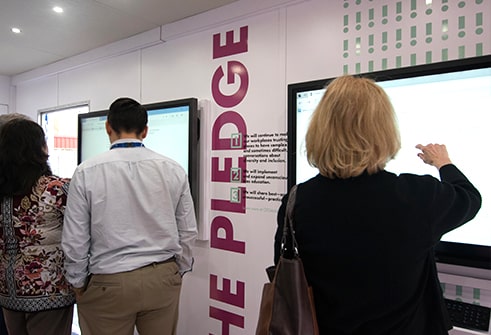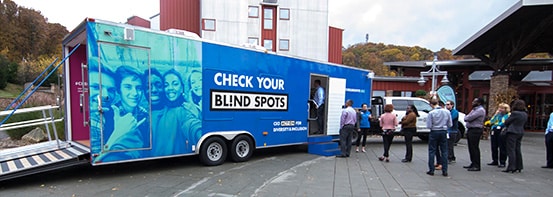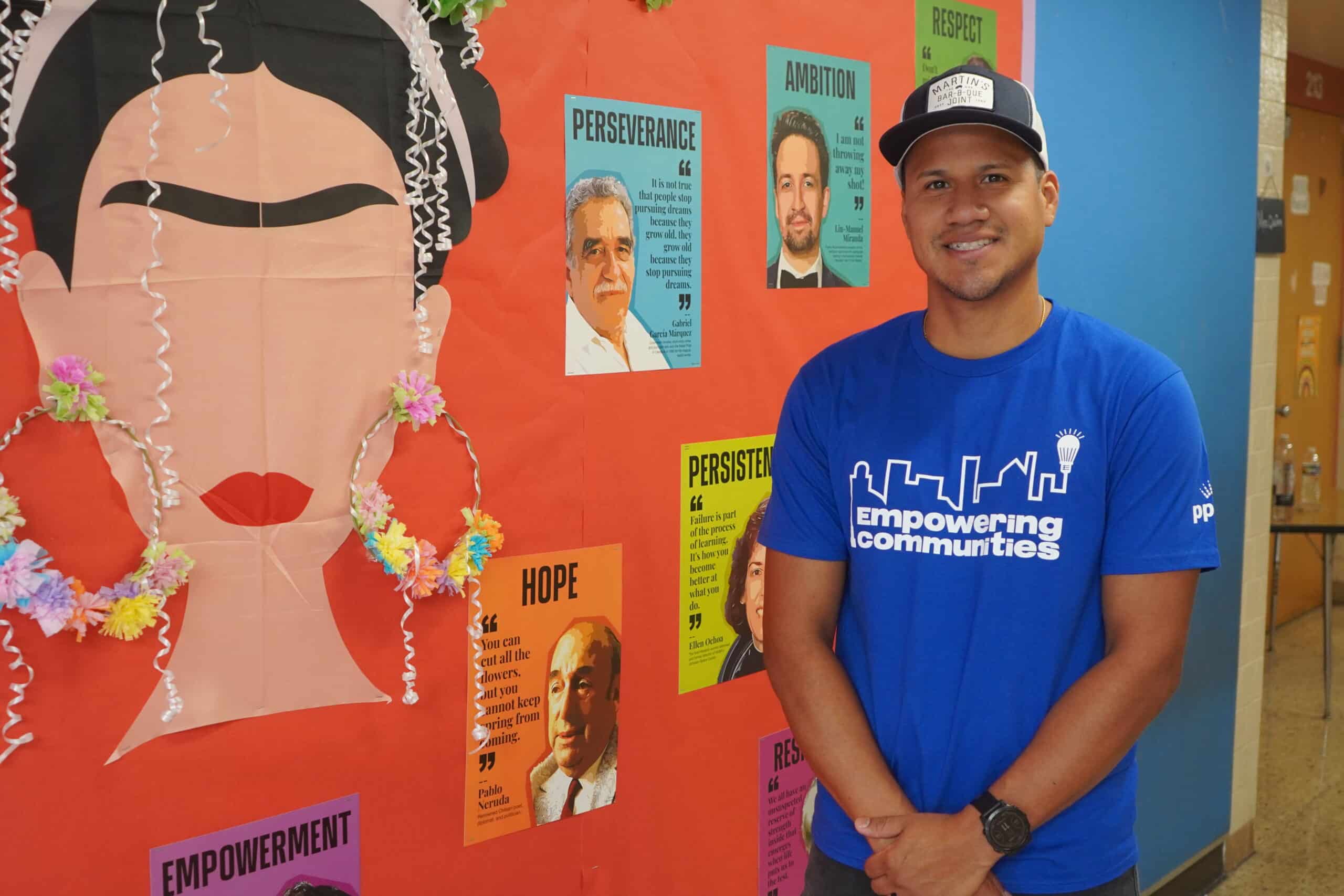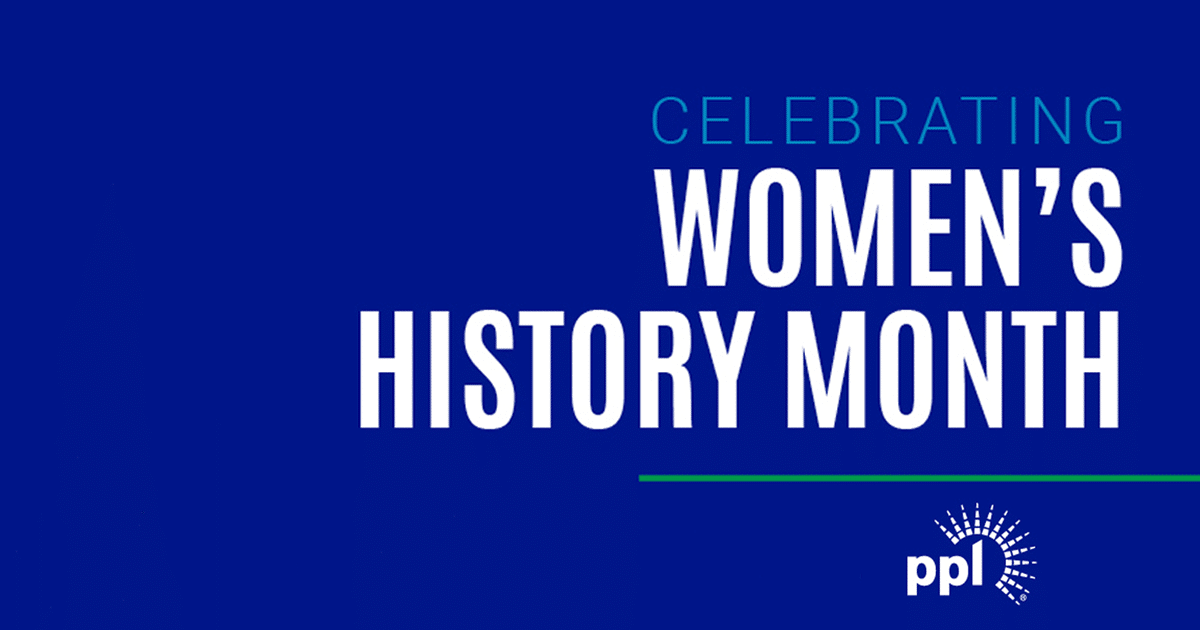Employees take part in Check Your Blind Spots mobile tour during annual diversity and inclusion conference
Even the most open-minded, well-intentioned people can fall victim to making snap judgments that aren’t aligned with their core values and beliefs.
And those quick decisions, although not intended, could prevent others from getting a fair shake.
That’s the main message behind the Check Your Blind Spots mobile tour, an interactive experience launched by CEO Action for Diversity & Inclusion that educates guests about unconscious bias, or blind spots.
The tour makes stops at college campuses and corporate offices around the country. PPL employees experienced the tour this month during the company’s annual conference for employees about inclusion, diversity and leadership.
Employees watched a video in the Check Your Blind Spots trailer, then took a test on a large touch screen to reinforce what they had learned. Employees discovered that 90 percent of their decisions are made by the unconscious mind and to “outsmart” the unconscious mind, they must acknowledge their own blind spots, slow down their thinking and consider all facts before making a decision – especially if it involves a person of another race, gender, sexuality or age.
“The biggest thing I learned from Check Your Blind Spots is you have to slow down. If you don’t, you’ll let your unconscious biases take over and you’re not doing anyone a service,” said PPL Project Control Specialist Megan Horan. “It’s a good reinforcement. You need to refresh yourself on all of this.”
Some of the facts PPL employees learned at the tour included:
- The human brain is overloaded with 11 million pieces of information every second, but can only process about 40 of those pieces in that one-second window. That’s why it’s important to slow down and consider all facts before making a decision.
- When orchestras in the 1970s began holding blind auditions behind a curtain, the number of female musicians increased by 20 percent. This shows that preconceived notions about roles based on stereotypes can lead to unfair decisions.
- Examining your network to see who is in it and who isn’t and opening the door to your inner circle and inviting in others with different experiences will help overcome potential blind spots.

“I love that the company is open to talking real talk,” PPL Senior Tech Clerk Gerry Pegues said. “You can dare to be open to discuss these topics.”



